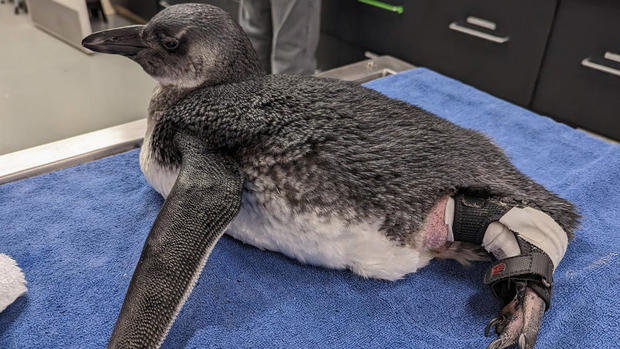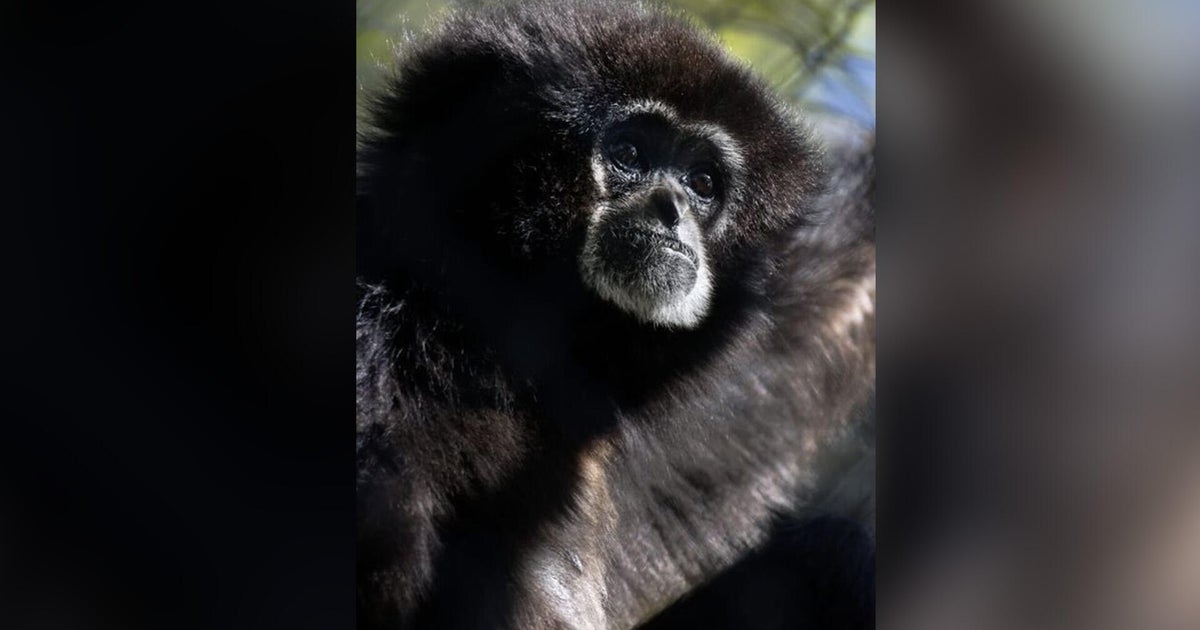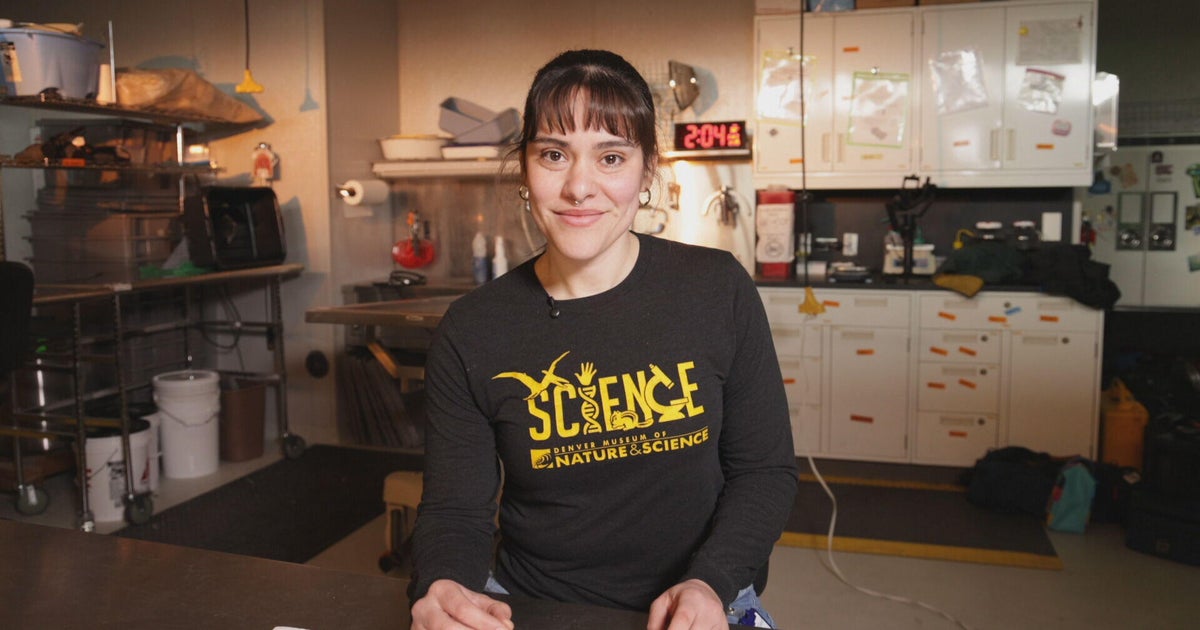Penguin undergoes first-of-its-kind ankle surgery at California Academy of Sciences
A slipped ankle tendon sounds like something attributed to a hulking NFL star on a team injury report.
But for a small penguin, such an injury used to mean amputation or even death.
No more, said the California Academy of Sciences in San Francisco. One of the academy's endangered African penguin chicks—part of what the academy called "a recent bumper crop of baby African penguins" developed a slipped tendon in his ankle.
The academy said in a statement Monday the injury is common for penguins. What's also common has been failed attempts at repair. So the academy decided to find a solution.
The Cal Academy veterinary team worked with vets and care teams across the U.S. to develop the first ever successful surgical repair to this issue.
The patient, named Iggie (for Ignatz Steinhart, one of the benefactors of the academy's Steinhart Aquarium), wore a teeny Teva boot to aid in his recovery.
After months of rehab under expert supervision and rehabilitation of the academy's medical team, Iggie is again thriving and frolicking with the rest of Cal Academy's penguin colony in Golden Gate Park.
Academy officials said the success of the surgery is a bright spot in the otherwise alarming trajectory of this endangered species. The academy is part of a network of Associations of Zoos and Aquariums (AZA) institutions caring for penguins to help bolster the population.
The population of African penguins is declining so rapidly (8% annually since 2005) that some experts believe they'll be extinct by 2030 or 2035.
According to the Cal Academy website, factors driving the decline of the African penguin population are sadly familiar: overfishing, water pollution, invasive species, and habitat destruction.
Commercial fishing has significantly decreased the penguins' main prey, and hungry parents are often forced to abandon their chicks. Shipping lanes off the coast of South Africa are also a problem.
In 2000, a massive oil spill impacted 40 percent of the penguin population. Feral cats have also taken a toll, as has the harvesting of guano for fertilizer, since it removes the penguins' primary burrow-construction material.
Only 10 percent of the original wild population of African Penguins—a million, as estimated in 1930. Of the 17 species of penguins on Earth, 10 are currently considered vulnerable or endangered.
In response to these threats, the Academy and 48 other AZA-accredited institutions participate in the African penguin Species Survival Plan and manage around 800 penguins among them. The member institutions regularly "trade" penguins to maintain valuable genetic diversity in the captive-bred population








